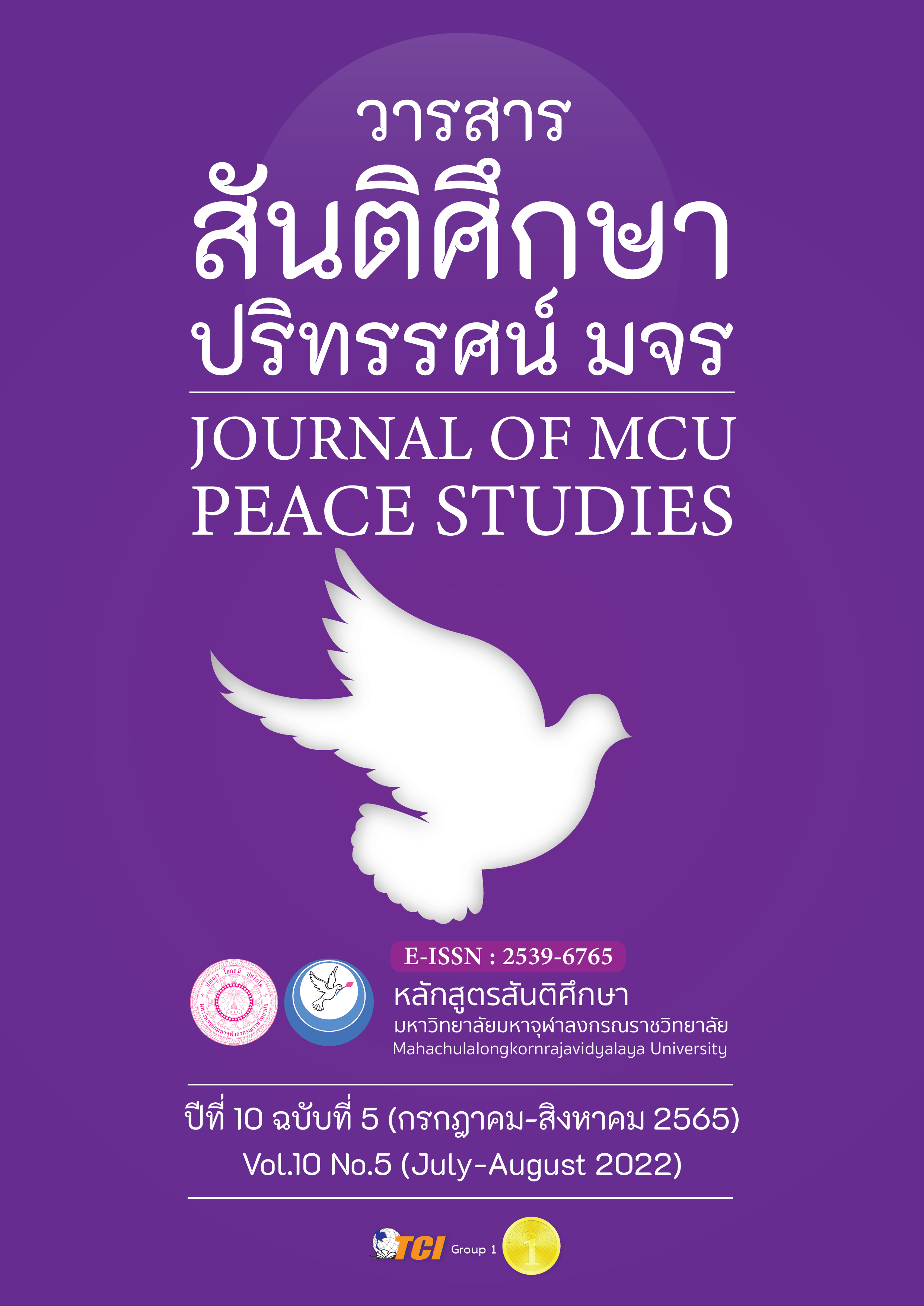การพัฒนาสมรรถนะและตัวชี้วัดของบัณฑิตสาขาวิชานิติศาสตร์
Main Article Content
บทคัดย่อ
บทความวิจัยนี้มีวัตถุประสงค์ คือ 1. เพื่อศึกษาองค์ประกอบสมรรถนะของบัณฑิตสาขาวิชานิติศาสตร์ และ 2. เพื่อพัฒนาสมรรถนะและตัวชี้วัดของบัณฑิตสาขาวิชานิติศาสตร์ โดยใช้วิธีการวิจัยเชิงบรรยายและรูปแบบความสัมพันธ์เชิงโครงสร้าง กลุ่มตัวอย่าง คือ 1) ผู้เชี่ยวชาญด้านกฎหมายที่ปฏิบัติงานในหน่วยงานภาครัฐและเอกชน จำนวน 5 คน 2) ผู้ใช้บัณฑิตและบัณฑิตสาขาวิชานิติศาสตร์ที่ปฏิบัติงานในหน่วยงานของรัฐและเอกชน จำนวน 520 คน เครื่องมือที่ใช้ในการวิจัยคือ 1) แบบสัมภาษณ์ และ 2) แบบสอบถาม ใช้การวิเคราะห์ข้อมูล คือ 1) การวิเคราะห์เนื้อหา และ 2) การวิเคราะห์องค์ประกอบเชิงยืนยัน
ผลการวิจัยพบว่า 1. สมรรถนะและตัวชี้วัดของบัณฑิตสาขาวิชานิติศาสตร์ ประกอบด้วย สมรรถนะหลัก 3 ด้าน คือ 1) ด้านคุณธรรมจริยธรรม 4 ตัวชี้วัด 2) ด้านความสัมพันธ์ระหว่างบุคคล 3 ตัวชี้วัด และ 3) ด้านเทคโนโลยีและการสื่อสาร 3 ตัวชี้วัด และ สมรรถนะวิชาชีพ 3 ด้าน คือ 1) ด้านกฎหมายสารบัญญัติ 4 ตัวชี้วัด 2) ด้านกฎหมายวิธีสบัญญัติ 4 ตัวชี้วัด และ 3) ด้านกฎหมายเกี่ยวกับการปฏิบัติงานภาครัฐและเอกชน 4 ตัวชี้วัด และ 2. ผลการวิเคราะห์องค์ประกอบเชิงยืนยันพบว่า โมเดลมีความสอดคล้องกลมกลืนกับข้อมูลเชิงประจักษ์ (Chi-Square=0.00, p=0.08, Chi-Square/df=1.265, GFI=0.98, AGFI=0.96, RMSEA=0.023, RMR=0.035, SRMR=0.029)
Article Details

อนุญาตภายใต้เงื่อนไข Creative Commons Attribution-NonCommercial-NoDerivatives 4.0 International License.
ทัศนะและความคิดเห็นที่ปรากฏในบทความในวารสาร ถือเป็นความรับผิดชอบของผู้เขียนบทความนั้น และไม่ถือเป็นทัศนะและความรับผิดชอบของกองบรรณาธิการ ยินยอมว่าบทความเป็นลิขสิทธิ์ของวารสาร
เอกสารอ้างอิง
Booncherdchoo, N. (2009). The Development of a Model of School Administrators’ Competency Development in Accordance with Education Professional Standards. (Doctoral Dissertation). Chulalongkorn University. Bangkok.
Hair, J. F. Jr., Black, W. C., Babin, B. J., & Anderson, R. E. (2010). Multivariate Data Analysis: A Global Perspective. (7th Ed.). New Jersey: Pearson Education Inc.
Hall, G. E., & Jones, H. L. (1976). Competency–Based Education: A Process for The Improvement of Education. New Jersey: Prentice–Hall.
Mcclelland, D. C. (1993). Intelligence Is Not the Best Predictor of Job Performance. Current Directions in Psychological Science, 2(1), 5-6.
Ministry of Industry. (2016). Development Strategy of Thai Industry 4.0, 20 Years (B.E. 2560-2579). Retrieved February 12, 2021 from https://Waa.Inter.Nstda.Or.Th/Stks/Pub/2017 /20171114-Oie.Pdf
Office of Higher Education Commission. (2009). Ministry of Education Gazette: Qualifications Framework for Higher Education, B.E. 2552. Office of Higher Education Commission, Ministry of Education. Retrieved February 12, 2021, from http://Www.Air.Or.Th/Paper/ 201011161330-3.Pdf
Rassametummachot, S. (2007). Human Potential Development Approach with Competency Based Learning. Bangkok: Thailand Productivity Institute.
Trilling, B. et al. (2010). 21st Century Skills: Learning for Life in Our Times. United States of America: Jossey-Bass Published.
Tiravanitchakul, R. (2013). The Development of Competencies, Indicators for Competencies of Bachelor’s Degree Students in Communication Disorders Program. (Doctoral Dissertation). Graduate School. Silpakorn University. Nakhon Pathom.
Vanichbuncha, K. (2018). Advanced Statistics Analysis by SPSS for Windows. Bangkok: Threelada Ltd., Part.


